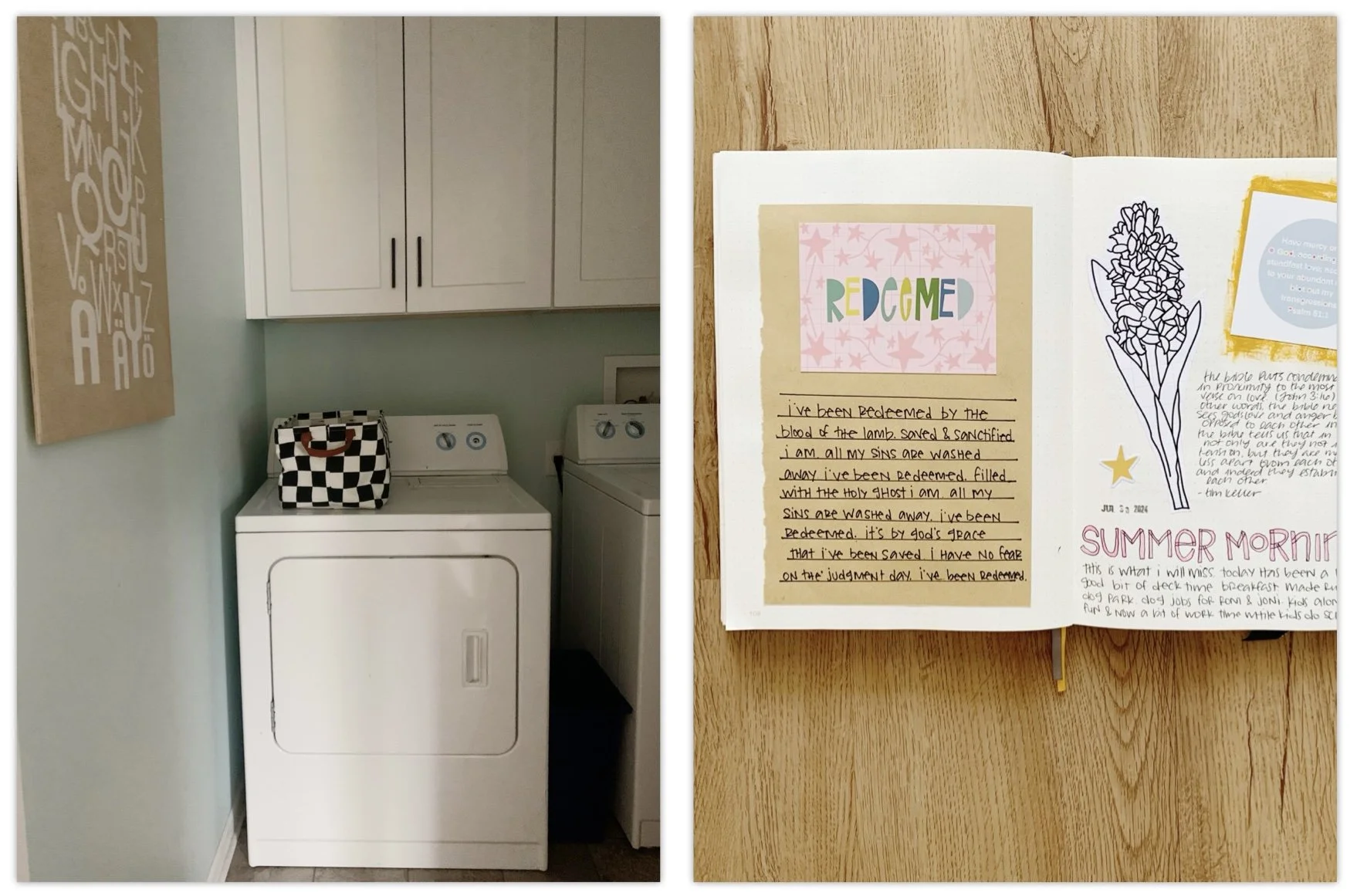the 5 w’s of common place book journaling
who should keep a commonplace book?
You! Since you’re here, I’m confident this is a good answer. :)
Joking aside, I think the practice of keeping a commonplace book can be valuable to anyone and everyone. We all have words that we treasure - words that are worthy of being kept and remembered.
What is a commonplace book?
A commonplace book is a notebook or journal that acts as a holding place for text from various sources.
Let me give you an analogy:
We keep a basket on top of our washing machine to catch all of the papers that we don’t want to lose, but also don’t want scattered around the house. It holds invitations, bills, school forms, coupons for oil changes, and the kids’ artwork that isn’t quite ready to hit the recycling bin. In short, it is the repository for the tasks of life. (And it means that my kitchen counter isn’t cluttered with these things. :) )
A commonplace book has a very similar function.
It is the repository for all the things. But (for me, anyway) instead of holding reminders for the tasks of daily life, it holds remnants of my heart and head. It’s where I keep the song lyrics that strike a chord, the funny note left by my husband, diary-style journal entries, and quotes from books I read. It is the keeping place for anything that makes me pause.
Rather than having a specific theme, the common theme of a commonplace book is you. It is a place to save all the bits from your life that you find interesting, meaningful, thought-provoking, or that you might otherwise want to return to later.
when should I write in my commonplace book?
There are no rules here. But I do think it’s valuable to find a rhythm. A rhythm can be calendar-based, but it can also be more event-based. A few examples:
Calendar based:
Annual, monthly, or weekly entries with your goals and plans. These could also lead to “review” or “how it turned out” type entries.
Monthly “what I watched” or “what I listened to” entries.
A weekly time to write out the words that you’ve been collecting.
(We will talk more about where to store them in the meantime in a later lesson.)
Event based:
If you are a reader, you might strive to find at least one quote in each book that makes you pause.
If you attend church, you might look for one striking line from a song, hymn or Bible verse each time you attend.
A big part of keeping a commonplace book is just tuning in to what connects with you and finding a way to hold onto it until you can get it into your book.
where do i keep my commonplace book?
Here’s something good: notebooks are small and portable.
I generally keep my current commonplace book on the table in my studio - ready to be written in whenever I have the inkling to do so. My previous books are stored on various shelves throughout my house.
Your nightstand or bookshelf might work well. Smaller notebooks can be kept inside your bag or purse.
Why should i keep a commonplace book?
I believe commonplace books are valuable because they help us to live differently.
When you have a steady practice of keeping a commonplace book, you are more in tune with what makes you pause. Keeping a commonplace book has helped me to slow down and notice. It has helped me to take a breath and reread or listen more closely when something good comes across my plate.
Then there is the actual process of adding to your book. For me, this is its own reward. I love that I get to slow down for a second time, reflect on the words, and let them become part of my story as I write them out.
Finally, there is the joy of looking back through the pages.


